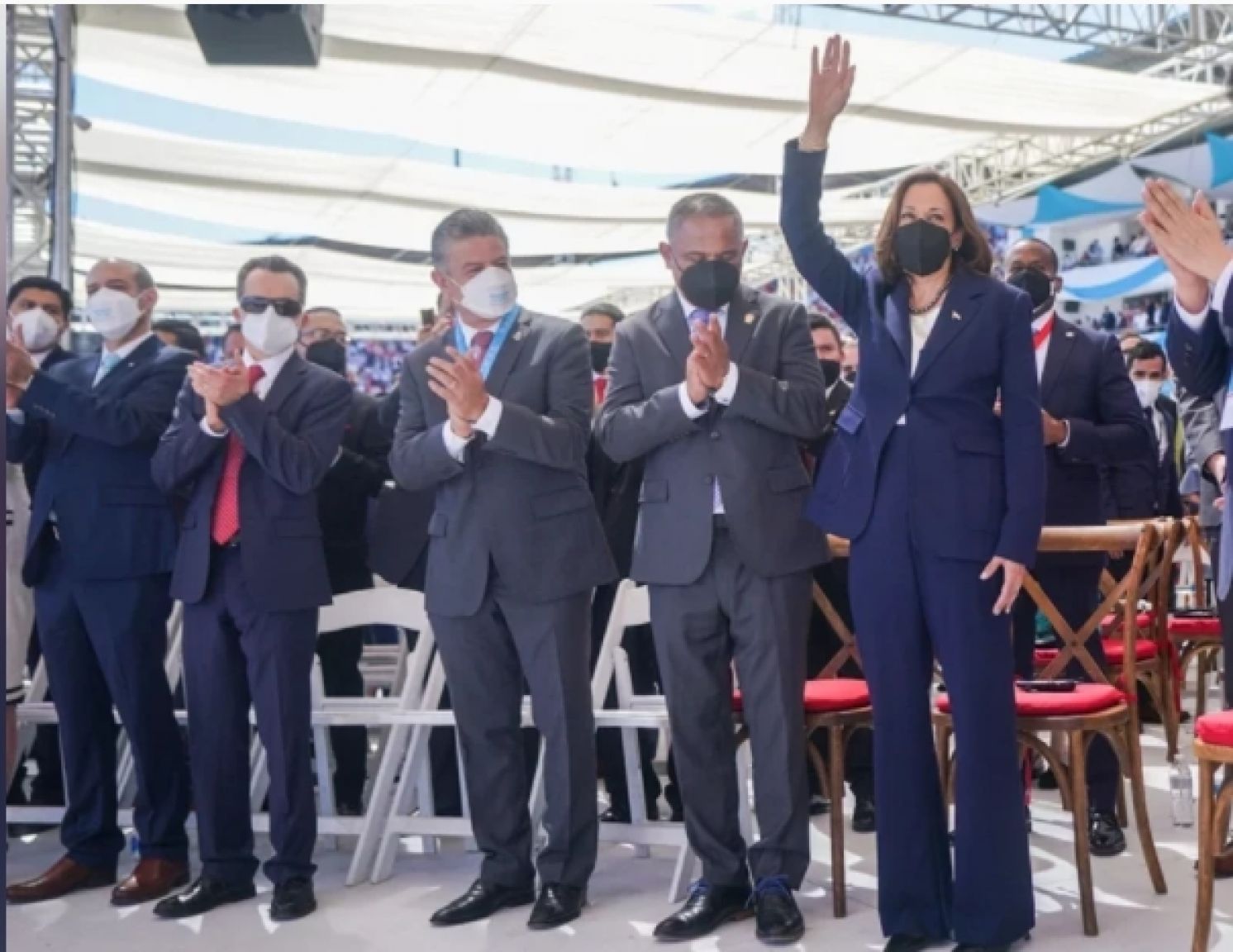
Lai's 30-Second Encounter Reveals True States of U.S.-Taiwan Relations
China Times, February 4, 2022
Vice President William Lai completed his first foreign visit in office and greeted Vice President Kamala Harris of the United States in the same picture, which was rendered as a “30-second historic interaction" and a "big diplomatic breakthrough". A "breakthrough" implies major changes, developments, or achievements. If it is just a random chat, there is at most only little media effect. It is not a breakthrough, let alone "historic". The ruling Democratic Progressive Party (DPP) administration claims that the U.S.-Taiwan relations is the best ever, but it must face the truth that with the “rock solid” in disguise the United States does not have a clear and consistent policy towards Taiwan.
Vice President Lai attended the inauguration ceremony of President Xiomara Castro of Honduras as a special envoy and transited in the United States on his round trip. The task was indeed important. Lai’s description of the trip as mission accomplished is fair. However, under the influence of the government, the media has been spreading exaggerated messages. Suppose that we are oriented with objective facts, we see that American diplomatic decisions and actions towards Taiwan are always based on its own interests and priorities. The interaction between Lai and Harris is a typical example of Taiwan being just a pawn of the U.S.-China strategic competition.
Mr. Lai is generally considered as a running lead for the 2024 presidential election by Taipei political circles. To present his presidential qualities when it comes to diplomacy, Lai went all out this time. Under the international watch, Lai took the initiative in approaching Harris, had a brief conversation, a 30-second interaction, which spread virally on the Internet, marking Lai’s first diplomatic outreach, which also sparked different, opposing interpretations.
Mr. Lai’s proactive approach and courage are worthy of recognition, but what must be explored is why the Biden administration, which is keen to play the "Taiwan card", announced early that Harris "has no plans to meet Taiwan’s vice president during her visit to Honduras". Afterwards, their response to the interaction between Lai and Harris was also not overly positive and reserved. Lai was also unable to transit through the U.S. east coast and could only pass by the west coast. After observing the arrangement of high-level officials transiting the U.S. in the past 40 years, the reception standards were quite low, showing the Biden administration’s concerns. But the DPP administration only cares about the media effect anyways and turns a blind eye to the real warning signs.
In fact, Secretary of State Blinken had a phone call with China’s Minister of Foreign Affairs Wang Yi on January 26, the day before Lai and Harris’s possible meeting, stressing the global security and economic risks caused by Russia’s further aggression against Ukraine. Wang took the opportunity to say, that the United States has continuously chosen the wrong words and actions when it comes to China, which has caused a new blow on the relationship between the two countries. This could be seen as an equivalent to a warning on the serious consequences of a possible meeting between Harris and Lai. On the Ukraine issue, the United States needs to try to get China's cooperation.
With the United States being cold to Mr. Lai, he had to take the initiative to talk to Harris. Harris was very respectful and had a brief conversation with Lai. When explaining to the media afterwards, she did not shy away from calling Lai "Taiwan's Vice President” but emphasized that he came over and introduced himself. To imply that she was just on the receiving end.
In the all-round strategic competition between the United States and China, Taiwan is the best card for the United States to check and balance China. The DPP is also willing to act accordingly, following a theory of going against China along with the United States. In cooperation with each other, the United States and Taiwan relationship does seem to look bright. But after the Xi-Biden video summit last November, "coexistence", "risk management" and "maintaining the status quo" have become the greatest common denominators in U.S.-China relations. At the same time, with the situation in Eastern Europe changing, mainland China has become a force that cannot be ignored. Under this new situation, the United States has avoided a head-on conflict with the mainland regarding the Taiwan issue, and the Taiwan card is no longer as effective. The United States did not want Lai and Harris’s meeting to create a new diplomatic drama, which shows that Taiwan’s so-called diplomatic breakthrough is nothing but self-deception.
In terms of diplomacy with the United States, the Ministry of Foreign Affairs and the representative office in the United States must mobilize all possible channels and contacts to facilitate a meeting and dialogue between Lai and Harris. But in the end, it was Lai who single-handedly stepped up to the plate as the Vice President. This high-risk and untraditional diplomatic behavior exposed the unequal relationship between the United States and Taiwan, which is very different from the seemingly friendly bilateral relationship and smooth communication channels made up by the DPP.
The DPP, who has full power, fully narrates the story when it comes to internal and external affairs but has no power when it comes to the actual relationship between the United States and Taiwan. Political figures who seek the presidency must even be recognized or endorsed by the United States. Looking at Mr. Lai’s diplomatic approach, it is obvious the United States is still taking a wait-and-see attitude towards 2024 and is not in a hurry to express its position. Whether Lai’s visit is a diplomatic breakthrough or not is basically determined by the United States. This is the diplomatic truth of the DPP administration.
From: https://www.chinatimes.com/opinion/20220204001760-262101?chdtv